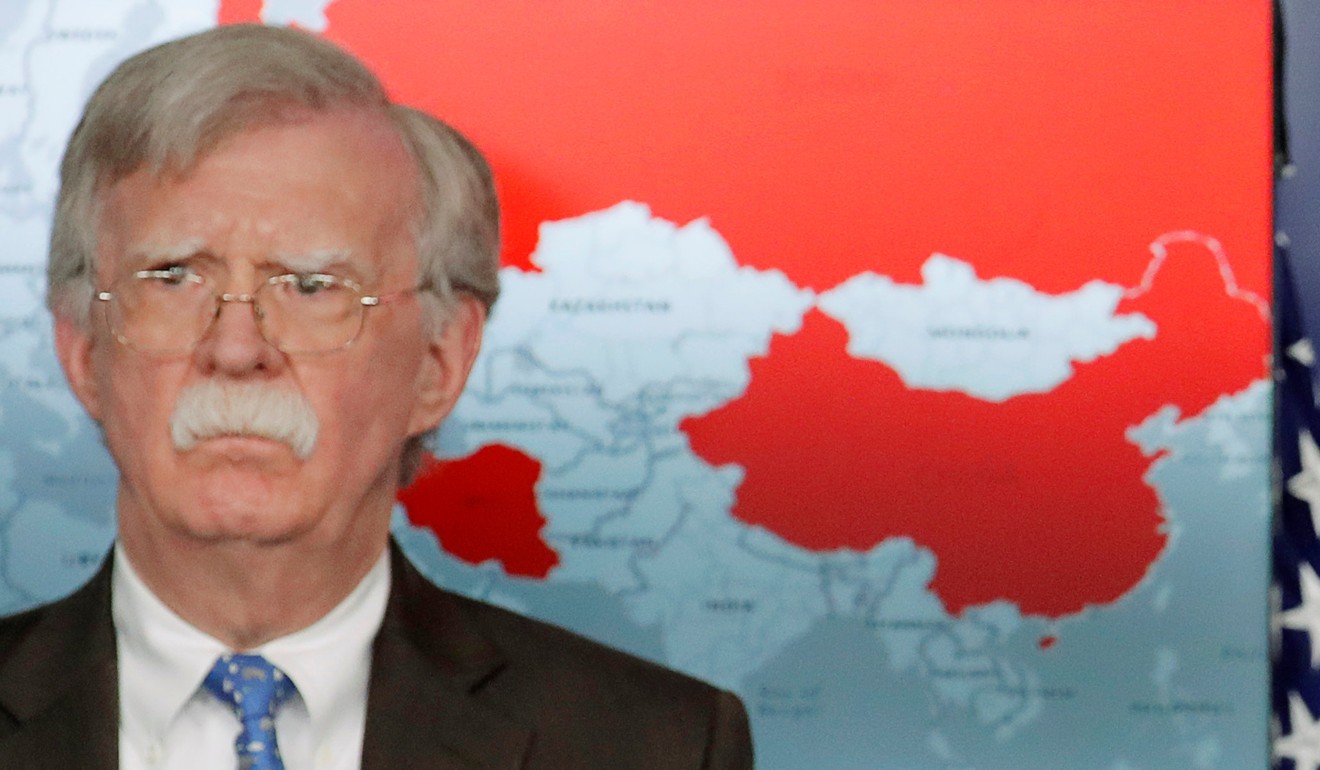
How John Bolton became US foreign policy’s ‘devil incarnate’
- The national security adviser has undermined diplomatic attempts with North Korea, supported regime change in Venezuela and appears to be goading Iran.
- Bolton’s greatest danger is that he could upset the existing international order
On meeting US National Security Adviser John Bolton for the first time, then-defence secretary James Mattis told him he had heard Bolton was “the devil incarnate”.
Jokes aside, Bolton, if not the devil, is a dangerous counter to President Donald Trump’s aversion to involvement in more foreign military adventures.
Bolton is a cunning and persistent nationalist ideologue, and he is smart enough not to take on Trump directly, demurring that he is the “national security adviser — not the national security decider”.
Despite this false modesty, he has apparently helped to undermine Trump’s attempts at diplomacy with North Korea and appears to be driving, by default, the provocative US policy and actions on Venezuela and Iran.
His predilections were well-known. But not many thought Bolton could become so influential so quickly. They thought he would be balanced by more moderate officials like Mattis.
Unsurprisingly, Bolton and Secretary of State Mike Pompeo seem to have more influence than Shanahan over the wielding of US military as a political tool.
When Bolton was named national security adviser, there were fears he would run roughshod over the prevailing international system, setting parts of the world alight and leaving a legal and political mess for future generations.
An effort to prevent the spread of weapons of mass destruction, it has been criticised for lacking transparency and stretching, if not violating, principles of international law, weakening the UN system, being politically divisive and diluting other non-proliferation efforts.
He wholeheartedly supports Israel and is obviously antagonistic towards Iran, a predilection that could upset the teetering political applecart in the Middle East.

But the most dangerous and lasting damage Bolton may do to the US and the world is to upset the existing international order.
This is not hyperbole.
A clearheaded assessment of Bolton’s statements and positions indicates he believes that US sovereignty and freedom of action are wrongly constrained by international law, multilateral organisations such as the UN and global treaties.
To Bolton, these are political impediments to be ignored or reinterpreted as expedience dictates. He strongly prefers unilateralism or, if appropriate, “coalitions of the willing” acting independently of the UN.
Bolton must be frustrated by Trump’s unwitting undermining of his efforts to advance his agenda of regime change.
Regarding North Korea, Bolton pushed for the US to move the goalposts at the last minute, prompting Pyongyang to request a partial lifting of sanctions, which was unacceptable to Trump and led negotiations to break down in Hanoi.
Regarding Russia, nothing appears to shake Trump’s faith in his personal relationship with President Vladimir Putin, and thus US security relations with Russia. And, with China, Trump is focused on trade negotiations.
But Trump’s ideological and policy approach has been inconsistent and confusing, allowing Bolton and company to exploit the ambiguities and seize the initiative with Venezuela, Iran and in the South China Sea.
Undaunted, Bolton turned his attention to his bête noir, Iran. For unknown reasons, Bolton seems intent on regime change there and goading Iran into a conflict.
After withdrawing from the Iran nuclear pact, the US has steadily ratcheted up tensions with a “maximum pressure” campaign.
Trump claims he “tempers” Bolton. But it is not clear who is influencing whom when it comes to interventionist foreign policy decisions.
Of course, Trump may once again disrupt Bolton’s clever schemes. Or Iran may not take the bait. But, if a conflict fails to erupt, it will not be for lack of trying on Bolton’s part. He has become the “devil incarnate” in US foreign policy.
Mark J. Valencia is an adjunct senior scholar at the National Institute for South China Sea Studies, Haikou, China

